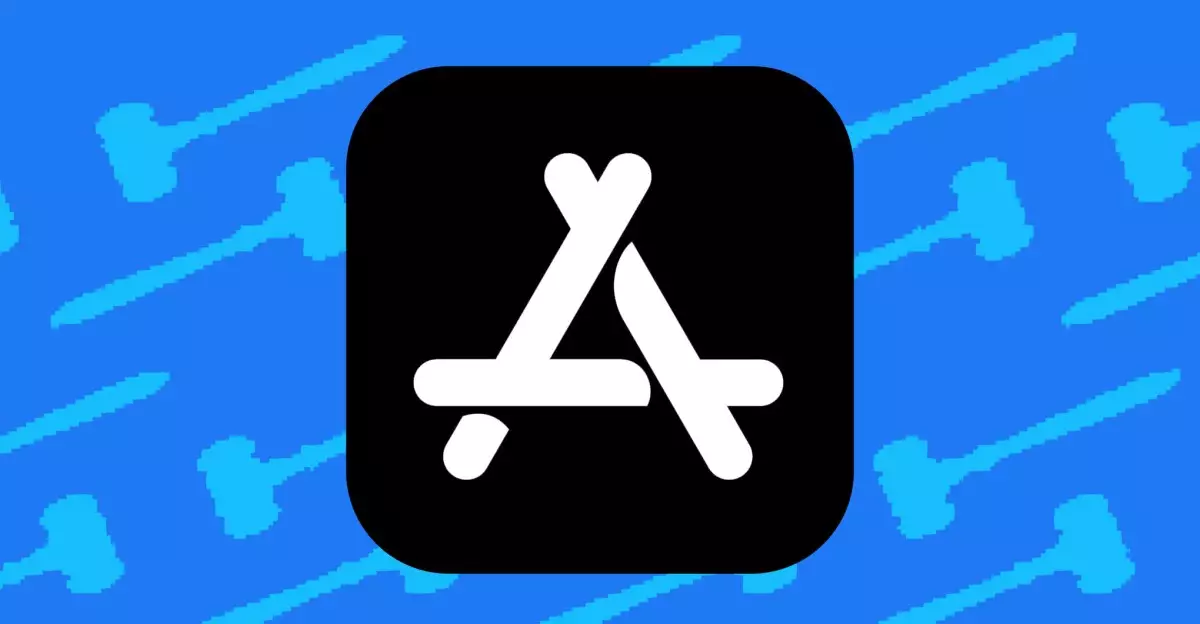In a gripping showdown that exemplifies the fierce battles within the tech industry, Epic Games is pushing back against Apple with renewed vigor. The heart of the conflict lies in Epic’s assertion that Apple is violating a court order issued last month. As a consumer and technology enthusiast, one cannot help but feel the weight of this legal duel, which underscores the broader issues of competition and fairness in app distribution.
Epic Games has formally requested District Judge Yvonne Gonzalez Rogers to enforce a prior injunction that limits Apple’s power to reject apps based on their use of external payment links. This request follows Epic’s complaint that Apple has unlawfully stalled the approval process for its beloved game, Fortnite. The immense stakes here highlight the question faced by regulators and consumers alike: who should control the digital marketplace?
The Stakes of Digital Monopoly
The landscape of mobile applications is tightly controlled by a handful of tech giants, with Apple holding significant sway within its ecosystem. By refusing to approve Fortnite until a higher court can review the case, Apple is not just delaying a product launch; it is also tangibly reinforcing its dominance over how apps monetize. Epic’s allegations suggest that this delay is not only punitive but also a strategic maneuver to maintain their grip on the $100 billion app economy.
The tension escalates as Epic argues that Apple’s inaction contradicts its previous commitments. According to court documents cited by Epic, Apple had promised to evaluate Fortnite’s submission promptly if it adhered to existing guidelines. But the tech giant is now seemingly backtracking, using legal entanglements to create barriers for Epic’s popular game, which is paradoxically described as both an enormous success and a thorn in Apple’s side.
The Role of Judge Gonzalez Rogers
What complicates this legal battle further is the role of Judge Gonzalez Rogers, who, despite issuing an injunction in April, has not mandated Fortnite’s immediate return to the App Store. Her previous ruling critically noted that Epic had flouted the terms of its developer agreement, complicating the legal terrain. Whether Epic can convince the judge of Apple’s contempt hinges on how much credence she gives to the allegations of retaliation and unfair delay.
The rhetoric in her previous ruling suggests a nuanced view; Gonzalez Rogers appeared frustrated by Apple’s tactics, which may work in Epic’s favor this time. Her experience and the depth of her understanding of app economics may lead her to view the systemic issues at play rather than simply adjudicating based on contractual technicalities.
A Spotlight on App Store Ethics
The underlying ethical questions this case raises cannot be ignored. Apple’s business model thrives on creating a closed ecosystem where it profits handsomely from every transaction. This has led to calls from various stakeholders—developers, consumers, and regulators—for reforms that foster more open markets. Epic’s battle serves as a rallying cry for advocates of app store reform, seeking to dismantle monopolistic practices that limit innovation and competition.
Moreover, as Epic asserts its case through legal avenues, it has ignited discussions surrounding the responsibilities of tech giants towards developers and users. Should companies that hold immense market power be allowed to unilaterally dictate terms that could stifle competition? Epic’s actions place it at the forefront of a movement advocating for a more egalitarian approach to digital spaces.
The Future of App Distribution
The case of Epic vs. Apple promises to shape the future of app distribution, not just for these two leviathans but for the entire industry. If Epic succeeds, it could pave the way for significant changes within the App Store, potentially heralding a new era that emphasizes fairness and promotes healthier competition. Alternatively, if Apple retains control over its closed ecosystem, it could solidify the status quo, frustrating developers and limiting consumer choices.
As we observe this fierce legal battle unfold, it becomes increasingly clear that the implications stretch far beyond Fortnite. The outcomes may serve as a precedent, defining the boundaries of developer rights, consumer access, and ethical marketplace practices for years to come. Regardless of the outcome, one thing remains certain: the digital landscape is ripe for evolution, and the stakes have never been higher.


Leave a Reply